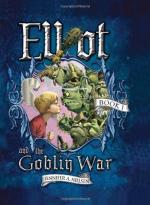“How’s that?” enquired Peter Pegg, as he sat down on his hunkers one night at the end of the row, while they discussed the prospects of the coming fight.
“Weel, ye saw how the Englishmen fought unitedly, an’ yet they were beaten, an’ had to gang back on a reduction. We’ll very likely be the same, for the maisters are a’ weel organized. What we should do is to ha’e England an’ Scotland coming out together, an’ let the pits stan’ then till the grass was growin’ owre the whorles. That would be my way o’ it, and I think it would soon bring the country to see what was in the wind.”
“That’s richt, Tam. It would soon bring the hale country to its senses; for nae matter what oor fight is, we are aye in the wrang wi’ some folk; so the shock o’ the hale country comin’ out would mak’ them tak’ notice, an’ would work the cure.”
So they talked of newer plans, while Smillie toiled like a giant to educate and organize the miners. He had taken hold of them as crude material, and was slowly shaping them into something like unity. A few more years and he would win; but the forces against him knew it, too, and so followed the great fight which lasted for seventeen weeks.
Singularly enough, while there was undoubtedly much privation, there was not very much real misery, as the strike had started early in a warm, dry summer.
Communal kitchens were at once established throughout the country. Everybody did his best, and the womenfolk especially toiled early and late. A committee was appointed in each village to gather in materials. Beef at a reasonable price was supplied by a local butcher. A horse and cart were borrowed, which went round the district gathering a cabbage or two here; a few carrots or turnips there, parsley at another, and so on, returning at night invariably laden with vegetables for the next day’s dinner. Sometimes a farmer would give a sheep, and the local cooperative society provided the bread at half the cost of production. Those farmers who were hostile gave nothing, but it would have paid them better had they concealed their hostility, for sometimes, even in a single night, large portions of a field of potatoes would disappear as by magic.
Robert worked in this fight like a man. He helped to cut down trees and saw them into logs, to cook the food at the soup kitchen. Everything and anything he tried, running errands, and even going with the van to solicit material for the following day’s meals.
All were cheerful, and no one seemed to take the fight bitterly. Sports were organized. Quoiting tournaments were got up, football matches arranged, games at rounders and hand-ball—every conceivable game was indulged in, with sometimes a few coppers as prizes but more often a few ounces of tobacco or tea or a packet of sugar. Dances in the evenings were started at the corner of the row to the strains of a melodeon, and were carried on to the early hours of the morning. It was from these gatherings that the young lads generally raided the fields and hen runs of the hostile farmers, returning with eggs, butter, potatoes, and even cheese—everything on which they could lay their hands.




